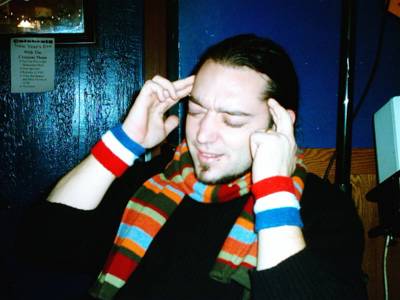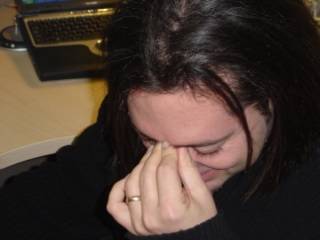Here is the running list of what I've Read this year.
42) The Good Earth, by Pearl Buck. Always good... every time.
41) Authentically Black: Essays for the Silent Black Majority, by John McWhorter. I'm still trying to make sense of this stuff...
40) We Want Freedom: Life in the Black Panther Party, by Mumia Abu-Jumal. Dang...
39) Dreams From My Father: A Story of Race and Inheritance, by Barack Obama. I love Barack, but after reading Malcolm's book and then reading Mumia's, Barack comes across fairly mild.
38) The Autobiography of Malcol X As Told to Alex Haley, Malcolm X. There aren't words to express how much this book has shaped me.
37) In the Name of Jesus, by Henri Nouwen. Another re-read and another one that I can't get enough of.
36) The Human Condition, by Thomas Keating. Another re-read and certainly not the last time I'll re-read it.
35) Reconciliation As the Mission of God, by Chris Rice. This was the Lausanne paper that came of out Chris' group. A good start for the theological framework for the reconciliation discussion.
34) 1491: New Revelations of the Americas Before Columbus, by Charles C. Mann. This was REALLY interesting but too long... I always get sad when reading about our country's history...
33) Korea, by Simon Winchester. Well, I was real hopeful that this was gonna be interesting and insightful, but travel-reports aren't my favorite and this was disappointing.
32) Miss Black America, by Veronica Chambers. This little novel is sad and hopeful, a great and quick read.
31) Gilead, by Marilynne Robinson. I read this for a conference I'm in and we discussed it in San Francisco with a group of Pastors. Really well written and reflective, made me think that I'd get so much more out of it in 20-30 years.
30) From Brokenness to Community, by Jean Vanier. I can't read this enough!
29) Things Fall Apart by Chinau Achebe. Another one that I've read plenty of times but read it with Jara for a book-club. I LOVE this one!
28) A Spirituality of Fund-Raising, by Henri Nouwen. This little booklet really helped me re-consider how I view money and fund-raising. Really insightful.
27) The Terminal Man, by Sir Alfred Mehan. This is the sort-of-autobiography of the real-life refugee living in the airport in Paris (we saw him earlier this year). Sad, sad story and very readable.
26) In A Free State, by V. S. Naipaul. This helped me take a Booker Prize winner along with a Nobel Literature prize winner off both lists with one read. Not the best fiction I've read this year...
25) An Ordinary Person's Guide to Empire, by Arundhati Roy. DANG! This is an Indian version of her last few political essay books published in the US. There were a few essays I hadn't seen before but even re-reading the others was INCREDIBLE!
24) Poverty by Raniero Cantalamessa. I've read this plenty of time and will keep reading it. Read it again this summer in India for a book discussion that was really provacative.
23) Resident Aliens: Life in the Christian Colony-A Provacative Christian Assessment of Culture and Ministry for People who Know that Something is Wrong, by Stanley Hauerwas and William Willimon. I read this in India and AFTER I had met Hauerwas at Duke... wondering how much better it would have been reading this in the States AFTER having met Hauerwas. Good pick, thanks Strayer for the recommendation.
22) The World Is Flat: A Brief History of the Twenty-First Century, by Thomas Friedman... well, I'd really like to actually read a good commentary on globalization and this isn't it... in fact, Friedman agenda is incredibly slanted and short-sighted. I was mostly mad reading through this.
21) Whose Religion is Christianity: The Gospel Beyond the West, by Lamin Sanneh. After reading The Next Christendom I thought this was a good follow-up, not as compelling, but good.
20) The Next Christendom: The Coming of Global Christianity, by Philip Jenkins. I think after reading Divided by Faith, I had to pick this one up. It takes on a similar issue but on a global perspective, suggeting that in 40 years only 1 in 5 Christians will be white. The church has to look beyond the perception that Christianity is a white, Western, male-dominated religion for the affluent and poweful-in fact, statistically it loolks more like a young Nigerian woman in a village or a young Brazial woman in a favela. How we address this reality will lend itself to how relevant the church is and remains.
19) Divided by Faith: Evangelical Religion and the Problem of Race in America, by Michael O. Emerson and Christian Smith. Okay... I'm bad b/c a couple dear friends (Dionne and Sarah) gave this to me in the fall of last year and I FINALLY got to it... can't say that I've read anything that's made this much of an impact on me for quite a while. The authors take on the issue of the "racialized" nature of the American Evangelicalism and build a strong case that this is a structural issue that we must make a priority. Highly recommend this one, chapters 1, 6, and 8 would be enough if that's all you can get to.
18) Jesus and Mary: Finding Our Sacred Center, by Henri J.M. Nouwen. As I've been meeting with my spiritual director, the contemplative nature of our relationships has become much more meaningful to me and Nouwen does a great job of pulling that out of Christ's life in this little book.
17) The Green Belt Movement: Sharing the Approach and Experiences, by Wangari Maathai. The only African woman to win the Nobel Prize for Peace was Maathai and this is the story of her movement that not only contributed to the environment, but also to women's empowerment. Easy to read and informative.
16) Women Writing Resistance: Essays on Latin America and the Caribbean, edited by Jennifer Browdy de Hernandez. I had wanted to read this for a long, long time and finally found it on the top of the pile of what's next. The collection of authors (I think 18 different voices) gathered for this compilation is impressive and so I think my expectations might have been set too high. I felt like there were a lot of great essays, but it wasn't until Rigoberta Menchu's, the Nobel Peace Prize winner, essay that I really felt connected to this one. Then the piece by Jamaica Kincaid just blew me away... it's something I will revisit and share as much as I can. Not the best, but it's always hard to judge the quality of a compiled work.
15) The God of Small Things, by Arundhati Roy. I have a strong bias FOR the Indian novel, especially the South Indian novel (which is hard to come by). I also can't get enough of Arundhati Roy, everything I've read of hers has been fabulous. The God of Small Things is her Booker Prize winning novel, and though I felt like I was "running downhill" (that's when I feel like I'm turning pages faster than I can keep up with), I think I like her political writings more. Don't be mad Arundhati...
14) Lament for a Son, by Nicholas Wolterstorff. The "Oracle" in my world, Bob, says that God saves suffering for those He loves the most. I often think of that when I reflect on my friends in India-especially my friends at Samanthana Illam (a home for profoundly physically and mentally disabled children) and those of my friends that I've buried b/c of AIDS and disease related to malnutrition. That's probably the closest to grieving and suffering that I've personally experienced. I mean, it was very hard for me when my grandfather passed away, but when we buried Prema (3 months old) or E. Noel, the one I named... it was almost too much for me. Anyway, in Lament for a Son, Wolterstorff reflects on the loss of hi 25-year-old boy and fills page after page of thoughtful and painful considerations on life, death, regret, remorse, and hope. In particular 2 statements help bring some understanding to the hurt and pain I grapple with no matter how many times I visit my 11 friends in their resting place at the Madras cemetery in India: Page 22, "I lament all that might have been, and now will never be." Pages 100-101, "If the resting place of the remains of God's icons deserve respect, then surely the dwelling places of his living icons do." This book is powerful and painful. A friend who's wife has cancer (2nd time around) passed this along. Though I've not experienced the loss of a son or the fight for life for Phileena, I feel like reading and reflecting on things like this are necessary to experience the fullness of life WHILE and WHEN we have it.
13) Oryx and Crake, by Margaret Atwood. Okay... after I read The Handmaiden's Tale I wasn't sure I cared much for Atwood. Then, about a hundred pages or so into this one, I thought I probably cared for her less. But once I did get into Oryx and Crake it was really difficult to put it down-in fact, I finished this one in a day. It was a great read but not sure I'd recommend it. Since I would like to read all the Booker Prize winning novels I'm afraid that Atwood and I will interact at least one more time...
12) Anil's Ghost, by Michael Ondaatje. I usually enjoy reading the Kiriyama Pacific Rim Book Prize winners (I think Anil's Ghost won it in 2000 or 2001), and Anil's Ghost was no different. Easy to read, fast-moving, and well-written. Set in Sri Lanka and so it put me somewhere else every time I opened the cover.
11) Shame, by Salman Rushdie. Three moms? Rushdie might be one of the best story tellers of our time. Rich and enthralling, but still can't compare to his genius in Midnight's Children. Rushdie is on my short-list for probable future Nobel Literature prize winners.
10) Their Eyes Were Watching God, by Zora Neale Hurston. I always say you can't judge a book buy its cover, but you can SELL one by its cover. That's why I bought this one. Never heard of Hurston (that's a tragedy) and never heard of this book, but it's now easily on my favorite novels of all time. Powerful, brilliant, and one of the most important novels by an American woman that I've ever read. I can’t recommend this strongly enough-not only one of the best novels I’ve ever read but maybe among the most important.
9) No One Writes the Colonel and Other Short Stories, by Gabriel Garcias Marquez. I usually don't care for short stories, but most all of these ones were great. Marquez is like an old man sitting around the table spinning tales for his grandchildren-great story teller.
8) Three Junes, by Julia Glass. Why did I bother to finish this one? Pithy and predictable. Too many loose ends never tied up. I'm disappointed in the Nation Book Award judges for taking this one so seriously.
7) Fahrenheit 451, by Ray Bradbury. Bradbury was WAY ahead of his time with this one, and I'm afraid we've still yet to appreciate this. I think the Patriot Act when it "matures" will help us understand the brilliance of Fahrenheit 451.
6) The Hitchhiker's Guide to the Galaxy, by Douglas Adams. Back in Middle-School lots of my friends read and loved this one, I probably should have read it then (and probably would have loved it). Fun enough to escape for a few hours.
5) Making Room: Recovering Hospitality as a Christian Tradition, by Christine Pohl. This was my second reading of this one and it really meant a lot more to me this time around. Christine’s reflections on health of a community to be able to extend hospitality are profound.
4) We Wish to Inform You That Tomorrow We Will Be Killed with Our Families: Stories from Rwanda, by Philip Gourevitch. Well, Steph, Daphne, Peewee and I went to see the film, Hotel Rwanda. Moving. Powerful. Afterwards, I went home, pulled this one off the shelves, and re-read (had read it a few years ago) all the way through. A LATE night...
3) A Short History of Nearly Everything, by Bill Bryson. Last year I heard about this one but couldn't get my hands on it because it wasn't available from any US book publishers. While in Singapore, by buddy Jeelan got me a copy and while travelling in South America I couldn't hardly put it down. It's kinda a history of the natural sciences which probably doesn't sound interesting, but this guy makes science VERY readable. Learned A FREAK'N TON!
2) Lifesigns: Intimacy, Fecundity, and Ecstasy in Christian Perspective, by Henri J.M. Nouwen. It's been a long time since I read something by Nouwen-especially something "new." This little book reminded me why he's had such a tremendous impact on my spiritual formation.
1) Where is God: Earthquake, Terrorism, Barbarity, and Hope, by Jon Sobrino. Okay, Sobrino is probably my favorite Christian writer of all time and this book just confirms that. I read this while in India and Sri Lanka on my tsunami relief trip and it was the perfect guide. His stuff in here on globalization and his reflections on "empire" are some of the best I've read anywhere.




